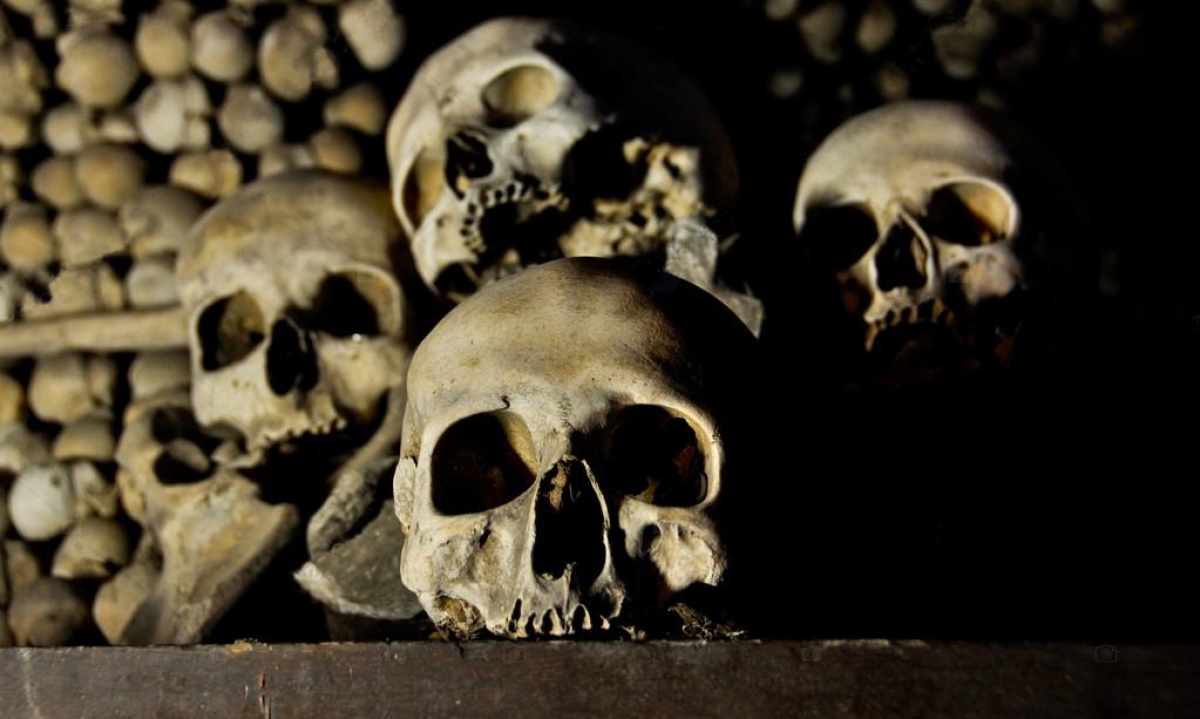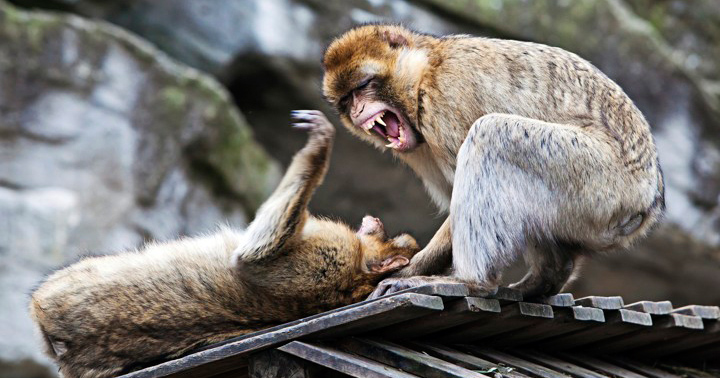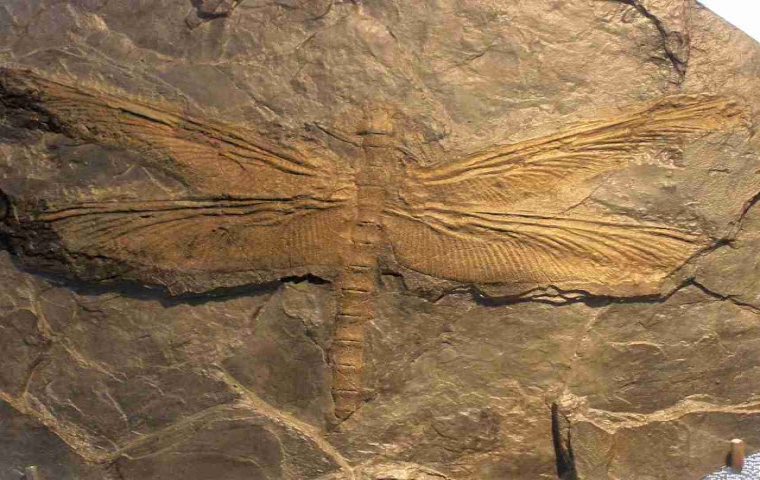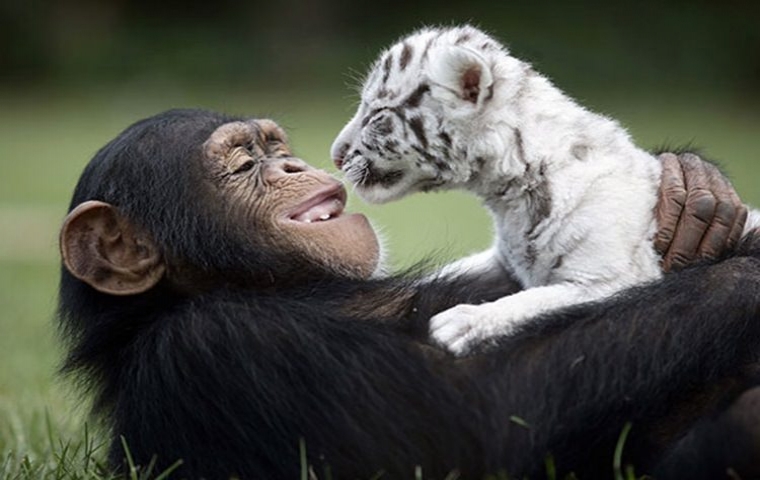War & Violence? Humans Are Genetically Predisposed To Kill Each Other
Do humans kill each other because it’s in our blood, or is it all based on our environment? a mix of both, but mostly, it's in our blood.

To read this article in Arabic, click here.
The psychological, sociological and evolutionary roots of conspecific violence in humans are still debated, despite attracting the attention of intellectuals for over two millennia.
Back in 2016, after studying more than 4 million murder records across 1,024 mammalian species, evolutionary biologists at the University of Granada found that humans are more vicious than most mammals but generally on par with our primate lineage. Moreover, though we are notorious for killing our own kind, we are not the only ones.
In fact, among these 1,024 mammalian species, 60% don't kill their own species, but 40% do. Humans are 6 times more lethal than the average mammal. The average mammal kills 0.3% of its own kind.
But what are roots of this conspecific violence? do we kill each other because it’s in our blood, or is it all based on our social organizations and environment?
Throughout history, killing rates jumped around a lot
When the researchers tracked the murder rates of human populations from 50,000 BC forward—capturing hunter-gatherers to bands, tribes, chiefdoms, and states—they noted that murder rates jumped around a lot.
The rates of lethal violence originally ranged from 3.4 to 3.9 percent during Paleolithic times, making us only slightly more violent than you’d expect for a primate of our evolutionary past. That rate rose to around 12 percent during the bloody Medieval period, before falling again over the last few centuries to levels even lower than our prehistoric past.
.jpg)
This led to the conclusion that the timespans for those fluctuations in ferociousness are too swift for a genetic explanation. Societies, it seems, can modify our killer instincts.
Thomas Hobbes would have approved. In the 17th century, he argued that modern society protects us from our brutish nature, lived in “continual fear, and danger of violent death.” "Not so", said Jean-Jacques Rousseau, who felt that civilization corrupts our neutral nature.
These opposing views on violence—the former emphasizing an innate proclivity, and the latter focusing on cultural influences—preceded Hobbes and Rousseau by many centuries, and outlived them by many more.
Humans are social & fiercely territorial
The reasons for the rampant self-killing appear to primarily relate to two other key aspects of Homo sapiens and other primates: fierce territoriality and living in social groups. Across all mammalian species, conspecific deadly violence is highly correlated with these two factors. A double hit of both factors compounds the violence.
Whales and bats are highly social, but not territorial, for example, and they have very low rates of killing their own kind. Human beings are highly social but extremely territorial--“Trespassers will be shot!” “He cut into my lane!” - R. Douglas Fields

Also would it be accurate to say that humans are tribal. As the Bedouin proverb goes - “Me against my brother; me and my brother against my cousin; me and my brother and my cousin against everyone else.”
What researchers often overlook in their analyses, but may unquestionably be the most important factor in violence among humans and other mammals, is sex. Males (boys, men, and the males of other mammalian species) are inherently violent, and they are responsible for the vast majority of violent death. This is a relic of the traditional male role in defending territory and social organization that our human and non-human mammalian ancestors practiced.
War & Violence? Humans really are exceptional
Not all homicides are equal, argues biological anthropologist Richard Wrangham of Harvard. “In the primates, infanticide is undoubtedly the commonest type,” Wrangham told The Atlantic. But humans “kill adults at an exceptionally high rate…. That’s worth stressing in order to avoid readers leaping to the conclusion that there is nothing surprising about human violence. Humans really are exceptional.”

“Our violence operates far outside the bounds of any other species. Human beings kill anything. Slaughter is a defining behavior of our species. We kill all other creatures, and we kill our own. Read today’s paper. Read yesterday’s, or read tomorrow’s. The enormous industry of print and broadcast journalism serves predominantly to document our killing. Violence exists in the animal world, of course, but on a far different scale. Carnivores kill for food; we kill our family members, our children, our parents, our spouses, our brothers and sisters, our cousins and in-laws. We kill strangers. We kill people who are different from us, in appearance, beliefs, race, and social status. We kill ourselves in suicide. We kill for advantage and for revenge, we kill for entertainment: the Roman Coliseum, drive-by shootings, bullfights, hunting and fishing, animal roadkill in an instantaneous reflex for sport. We kill friends, rivals, coworkers, and classmates. Children kill children, in school and on the playground. Grandparents, parents, fathers, mothers--all kill and all of them are the targets of killing…” -R. Douglas Fields, Why We Snap.
Neural circuits of violence?
In his book Why We Snap, neuroscientist R. Douglas Fields argues that the problem is that the neural circuits of violence that cause us to explode in rage and violence are deep in the brain beneath the cerebral cortex where consciousness arises. We are evolutionarily and genetically predisposed to snap in deadly violence, but in comparison to other animals, biology has indeed endowed our species with extraordinary “sapiens.”
Understanding this neurocircuitry is vital. Territoriality and social interactions are the “E” for environment, and “T” for tribe, triggers of sudden aggression in the mnemonic “LIFEMORTS,” which is a convenient way to learn to recognize the 9 triggers of rage. Each of these triggers of rage activates different neural circuits in the brain’s threat-detection mechanism.
Conclusion
Violence is in our genes and in our environment, but so too are territoriality and society. These things we will not change. Genes change at a glacial pace. But territory and society shift constantly and they are molded by man.
Will we ever be able to govern our vicious nature and cut this everlasting stream of blood? or are we eternally doomed to this inner corruption and primordial behaviour that lies in our genes?
The Largest Insect Ever Existed Was a Giant 'Dragonfly'
Weird History 'Meganeura' Was A Prehistoric Dragonfly With A Two-Foot Wingspan.
Empathy: The Root of Our Human Morality.. Is Not of Human Origin
Animals can feel empathy just like humans do. Empathy for each other, for us, and even for other species.














